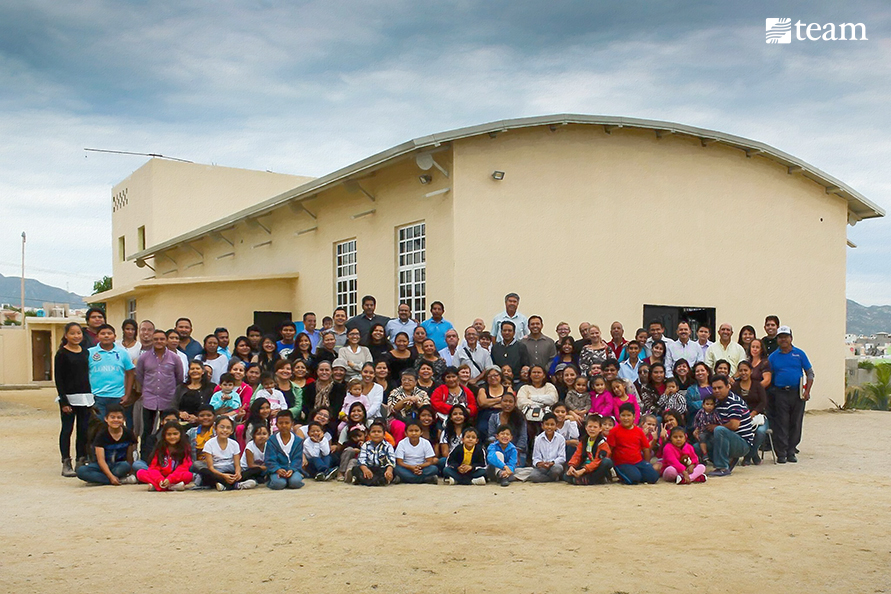
Becoming a Missionary, Missionary Life
Ministry Before Missions: 5 Reasons to Think Local Before You Go Global
June 23, 2022
by Suzanne Pearson

For many future missionaries, God’s calling to mission work can create an unnecessary sense of urgency. The desire to GO as soon as possible may cause an emotional decision to pursue cross-cultural missions right away without proper preparation. The result can be culture shock and difficulties adjusting to life on the mission field.
Seasoned missionaries offer great advice to avoid this pitfall: think local before you go global. Taking the time to invest in local ministries that relate to the type of mission work you want to do will go a long way toward preparing you for the field. There are many reasons why gaining experience in ministry while still living at “home” is a great idea. Here are 5 Key Reasons To Think Local before you Go Global.
1. To Gain Skills in a Particular Type of Ministry
Even though TEAM and other reputable mission-sending organizations provide great training, orientation and support before you go overseas, there is nothing like on-the-job experience. So take a look at the type of ministry you are interested in, and then seek out local opportunities that will allow you to learn those skills. For example, if you’re interested in education, teach or volunteer at a local school that is geared toward the age group and demographic of students you want to reach.
TEAM Guatemala global worker, Amie is a great example. Even before she went to college, Amie knew that she wanted to pursue medical missions. But after training as a nurse, Amie didn’t jump right into international missions. Instead, she worked as a nurse in a local homeless shelter. “I began to have some experience in the States that would look similar to the experience that I’m in right now in a clinic that’s in an under-resourced area and having to be creative with care and with supplies.”
2. To Learn How to Interact and Communicate with Diverse People Groups
Probably one of the biggest hurdles many global workers face is how to effectively build relationships with people from other cultures. Thankfully, those communication skills can begin before you ever leave home. Kyle and Shelly, TEAM workers in South Africa, invested in cross-cultural relationships in their Chicago neighborhood before traveling overseas.
“It proved to be really helpful to us because we got to preview the experience of a missionary. When you’re a missionary and you head overseas, you become the fish out of water. You become the one who is in a different land, a different culture,” says Kyle. “So if you want to know what it’s like to be a missionary without ever leaving home, one of the best ways to do it is, make friends with someone from a different culture in your country. When you see their struggles, you’ll understand your struggles when you become a missionary.”
Kit, another TEAM worker in South Africa is involved in college ministry. Before going abroad, Kit worked for four years in the U.S. with Intervarsity Christian Fellowship. During this time, he learned how valuable it is to just spend time doing life together with the students. “[Intervarsity] helped me to see the importance of just being with the students. I don’t know if I would have really understood that without the ministry that I did before,” says Kit.
3. To Understand the Values and Struggles of a Particular Culture
Every culture has its own values and struggles, many of which aren’t easy to see at first glance. Often potential missionaries have the misperception that if they know the language of a culture, they understand the culture itself. The worldview and value system of a culture, however, run much deeper. Rubbing shoulders with people from that culture within your own local community helps you gain a richer understanding of the culture’s mindset.
Art and Vicki are church planters in Mexico, but before they moved across the border, they worked for years at a Hispanic church plant near their home in Chicago. Even though Art was born in Mexico and spoke Spanish, he grew up in a mostly non-Hispanic community. Vicki explains how Hispanic ministry in Chicago prepared Art to lead a church plant in Mexico. “He learned about some of the difficulties in Mexico, some of the social problems,” remembers Vicki. “[We learned] the importance of relationships, the idea of ‘we’ instead of ‘I.’ This was a great way that God used the Spanish class and the church to confirm…that this was something we felt passionate about and that we could do.”

Art and Vicki’s work at Emmanuel Evangelical Church in San José del Cabo, Mexico came after years of local ministry in Chicago.
4. To Identify Your Strengths and Weaknesses
Engaging in local missions before international ministry allows you to find out which parts of ministry come naturally to you and which will require more practice and training. We all have strengths and weaknesses, but often it takes real-life practical experience to home in on what they are.
Amie looks back on her time as a nurse at the homeless shelter as invaluable in that regard. “It was a time where I could see very clearly some of my strengths and weaknesses, and start working on them before going overseas,” says Amie. She also says that those areas of weakness were faith builders as she saw God’s strength at work. “And so when I’m struggling with ministry here…I know that I can look back and see how God has worked in the past and I know that He is faithful and will continue to be at work in the future.”
5. To Grow in Your Walk with the Lord
Probably the most important thing to remember when considering missions work is that we are all, first and foremost, disciples of Jesus, no matter where we are. In order to be effective missionaries, we must first be committed to growing in the wisdom and knowledge of Jesus. Reaching into the lives of other people, right in our own backyard, is critical to our own discipleship and spiritual growth.
Paul, a veteran TEAM worker offers this sage advice: “Gain some ministry experience, become strong in your walk with the Lord, become stable. Then you bring that with you on the field. You’re just going to be more productive. You’re going to be a better servant of the Lord.”
Convinced but not sure how to make it happen? Check out some practical ways to get plugged into cross-cultural ministry without leaving home. Invest now in local ministry, see how God uses you right here at home, and you’ll be ready for global missions before you know it.

